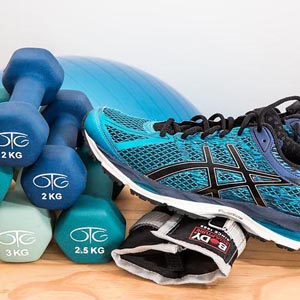Effects of concurrent training and CoQ10 on neurotrophic factors and physical function in people with Multiple Sclerosis: a pilot study

Accepted: 7 March 2023
HTML: 5
All claims expressed in this article are solely those of the authors and do not necessarily represent those of their affiliated organizations, or those of the publisher, the editors and the reviewers. Any product that may be evaluated in this article or claim that may be made by its manufacturer is not guaranteed or endorsed by the publisher.
Authors
The present study aimed to investigate the effects of 8-week of coenzyme Q10 (CoQ10) supplementation alone or combined with concurrent training (CT) on functional capacity, serum brain derived neurotrophic factor (BDNF) and nerve growth factor (NGF) in multiple sclerosis (MS) patients. Our hypothesis is that CT promotes improvements in the studied outcomes with higher results for the combination of CT and CoQ10. Randomized placebo-controlled trial. Twenty-eight patients with MS were randomly divided into 4 groups: CT+placebo, CT+CoQ10, CoQ10 and placebo. CT involved two resistance training sessions and one aerobic training session per week. CoQ10 was supplemented with 200 mg daily. Serum levels of BDNF, NGF and functional tests [timed up and go (TUG), 6-min walk (6MW), chest press, lateral pull down, leg extension, and lying leg curls one repetition maximum] were measured before and after the intervention period. CT+placebo and CT+CoQ10 significantly improved performance in TUG, 6MW, chest press, lateral pull down, leg extension, and lying leg curls, with superior results to both CoQ10 and placebo groups. Changes in TUG for CT+placebo were significantly higher than CT+CoQ10 (p<0.05). There were no significant differences in NGF and BDNF among the four groups (p >0.05). CT improves physical abilities in patient with MS, regardless CoQ10 supplementation. CT should be recommended for MS patients to increase functional capacity, but there seems to be no benefit in supplementing CoQ10.
How to Cite

This work is licensed under a Creative Commons Attribution-NonCommercial 4.0 International License.
PAGEPress has chosen to apply the Creative Commons Attribution NonCommercial 4.0 International License (CC BY-NC 4.0) to all manuscripts to be published.

 https://doi.org/10.4081/ejtm.2023.11253
https://doi.org/10.4081/ejtm.2023.11253



